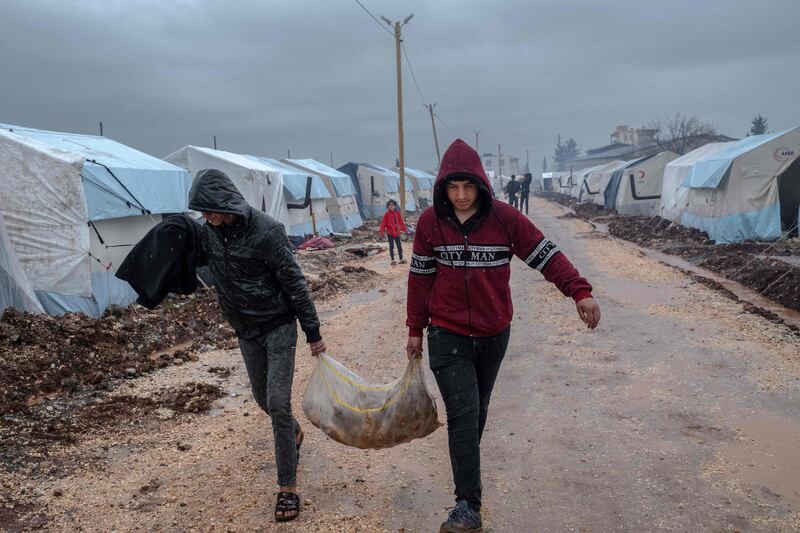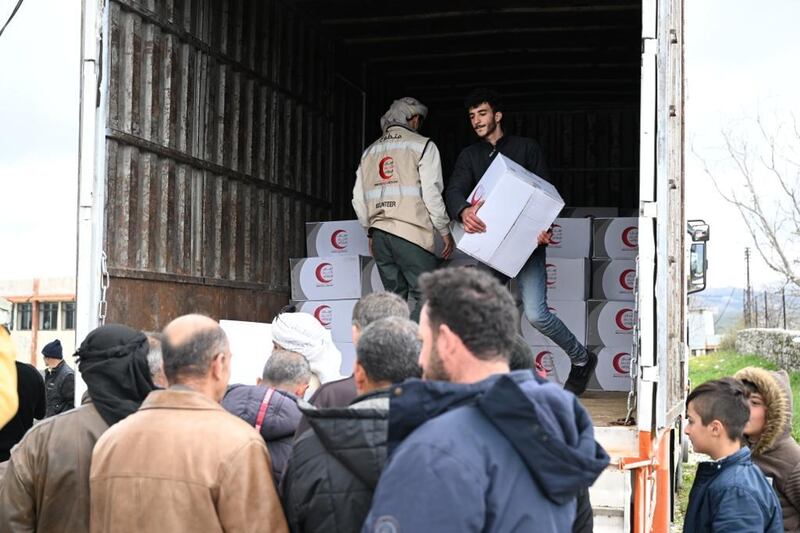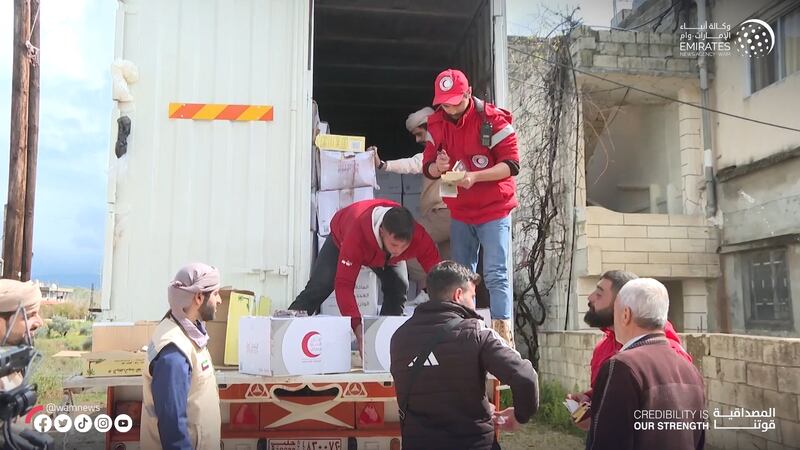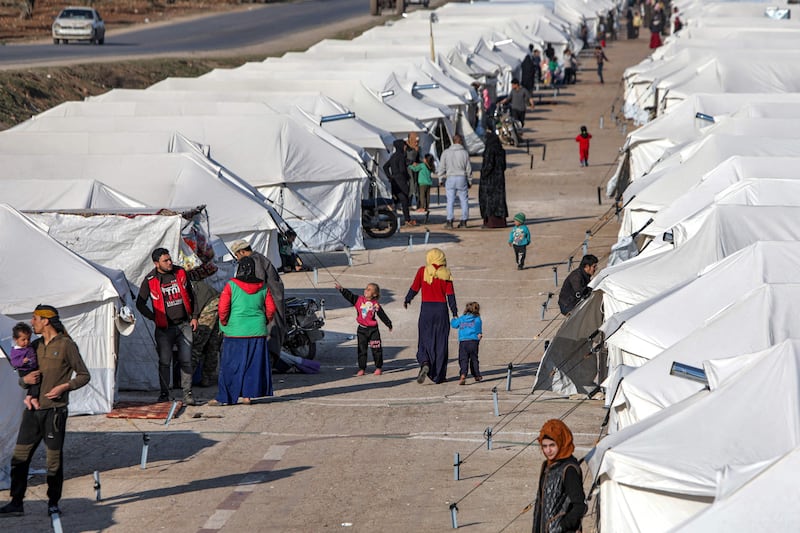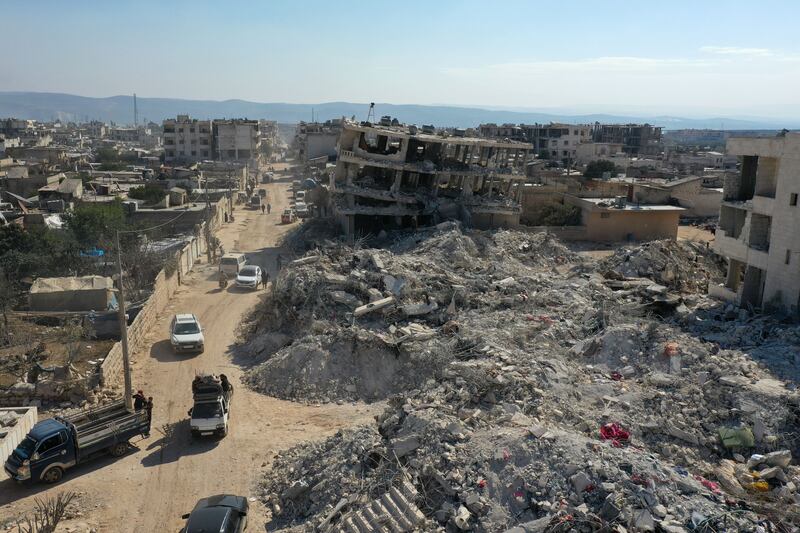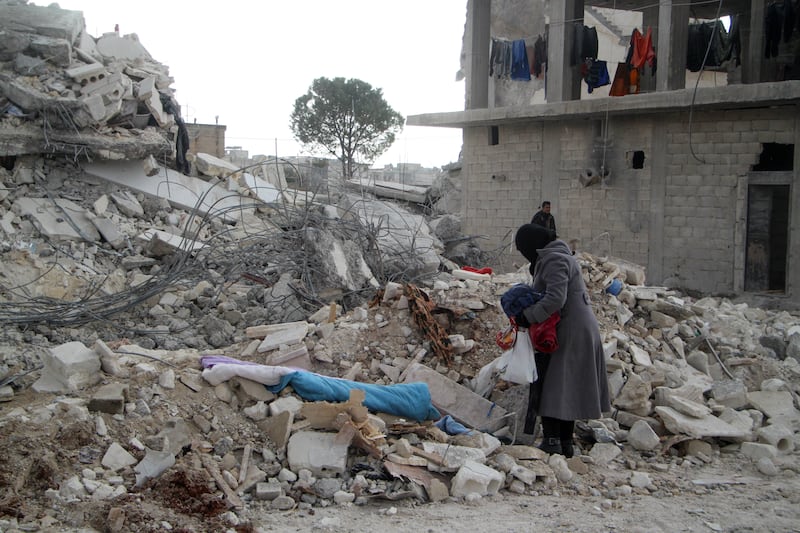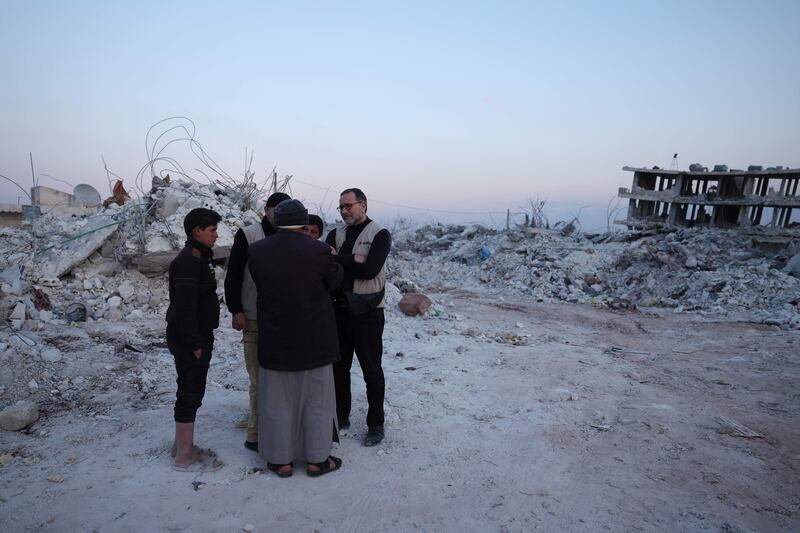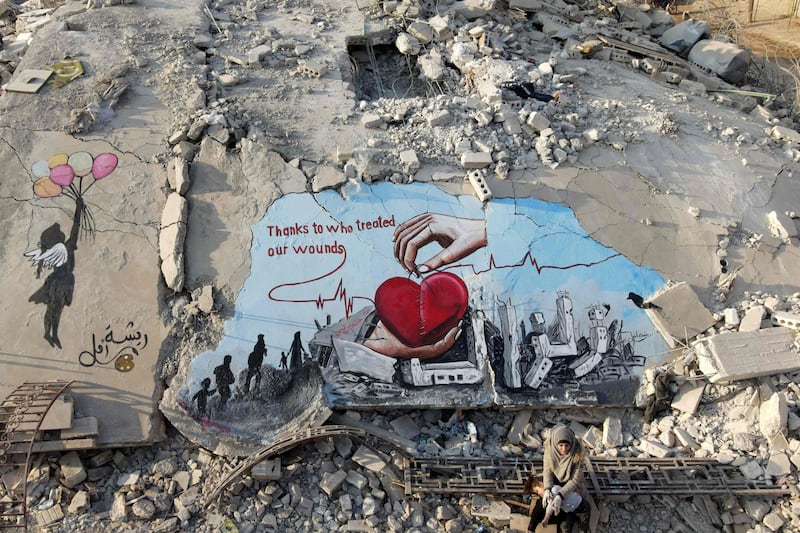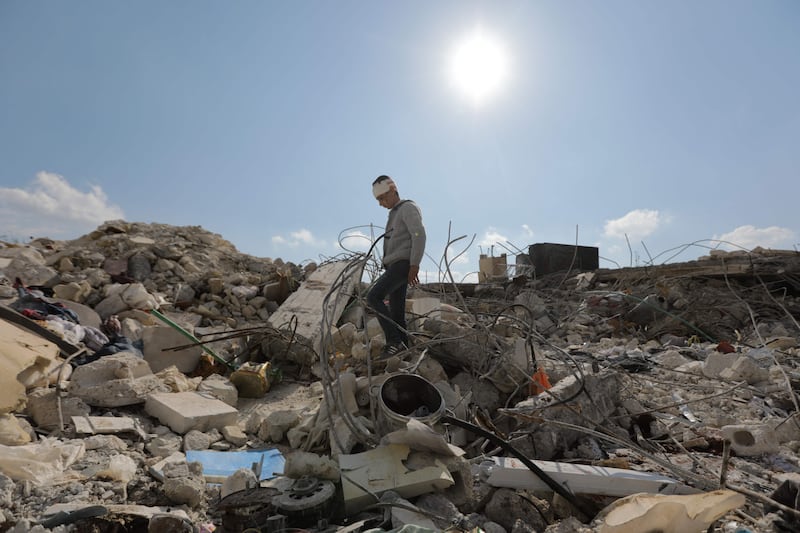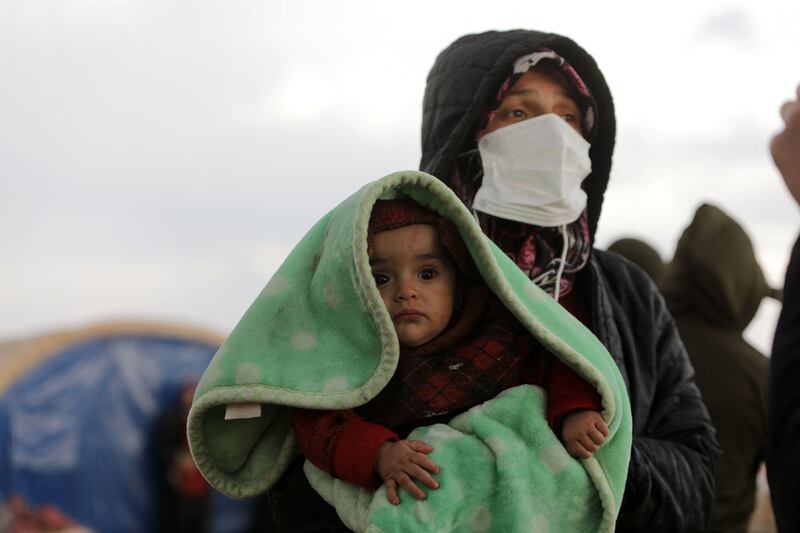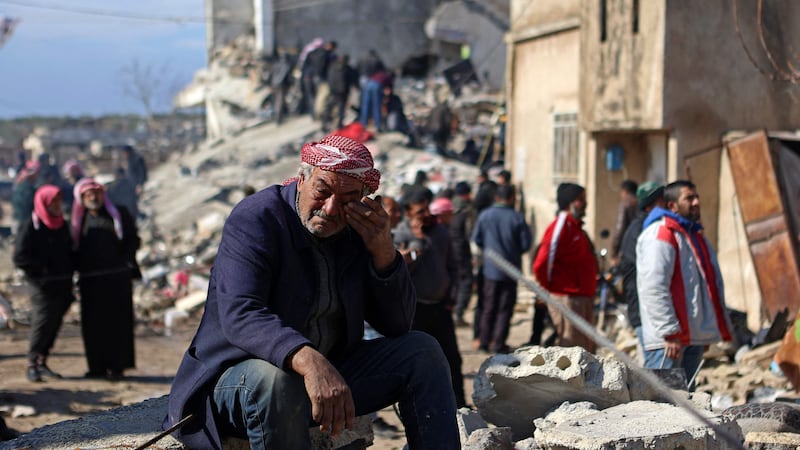Kuwait and Saudi Arabia are among the top five donors so far to the UN fund for relief work in Turkey after the earthquake that killed more than 55,000 people.
Donors have so far contributed $268 million to the $1 billion flash appeal issued by the UN after the 7.8-magnitude quake on February 6 and its aftershocks that devastated areas of south-east Turkey and parts of war-torn Syria
The UN humanitarian agency's spokesman, Jens Laerke, told reporters in Geneva on Friday that the initial emergency phase of the assistance programme had ended.
“Now we are involved in the humanitarian emergency phase, where we look at what the survivors need,” he said.
On February 16, the UN launched an appeal for $1 billion to help more than five million people in Turkey during the first three months after the quake.
The US, Kuwait, the European Commission, the UN's emergency fund CERF and Saudi Arabia are currently the top five donors.
Mr Laerke said UN and other humanitarian agencies had reached more than 4.1 million people with basic household items and clothes.
Of those, almost three million had also received emergency food aid, and 1.6 million has received water, sanitation and hygiene assistance.
The EU hosted a conference in Brussels earlier this month to raise money for reconstruction, the longer third phase.
Donors pledged €7 billion ($7.6 billion) to help Turkey and Syria recover, although Ankara has forecast the cost of rebuilding at well more than 10 times that figure.
The UN also issued a flash appeal to help earthquake survivors in for Syria over the first three months, which has raised $364 million of the $398 million requested.
About 1,177 UN relief lorries have so far entered northern Syria from Turkey.
“Since last month, we and our partners have provided shelter support, including tents, to nearly 100,000 people,” Mr Laerke said.
“Partners have also distributed more than 850,000 ready-to-eat food rations and over one million hot meals to people across affected areas.”
Separately, the UN's food agency said the earthquake damaged more than 20 per cent of Turkey's agricultural production.
The Food and Agriculture Organisation said initial assessments revealed “severe damage to agriculture, including crops, livestock, fisheries and aquaculture, as well as rural infrastructure in affected areas” in Turkey.
“The earthquake severely impacted 11 key agricultural provinces affecting 15.73 million people and more than 20 per cent of the country's food production,” it said in a statement.
“The earthquake-affected region, known as Turkey's 'fertile crescent', accounts for nearly 15 per cent of agricultural GDP and contributes to almost 20 per cent of Turkey's agrifood exports,” the FAO said.
It estimated the quake had caused $1.3 billion in damage, through the destruction of infrastructure, livestock and crops, and $5.1 billion in losses to the agricultural sector.
When the earthquake hit, buildings collapsed, crops were damaged and animals were killed, but the resulting devastation also created shortages of barns, food and vaccines for livestock that survived.
The shortage of workers is also having an impact, with particular concerns as the summer harvest season draws closer.
The FAO is appealing for $112 million to help quake-affected communities in Turkey, including $25 million under a wider UN appeal issued in February to provide cash, livestock and agricultural support to 900,000 people in rural areas.
“The planting season deadline is approaching. We need to urgently support our farmers by providing fertilisers and seeds,” said FAO co-ordinator Viorel Gutu.
“This is our only chance to maintain crop production levels this year. We also need to provide animals with feed to maintain their health and productivity.”
The FAO said more than one-third of the population in the hardest-hit areas relied on agriculture to survive.
